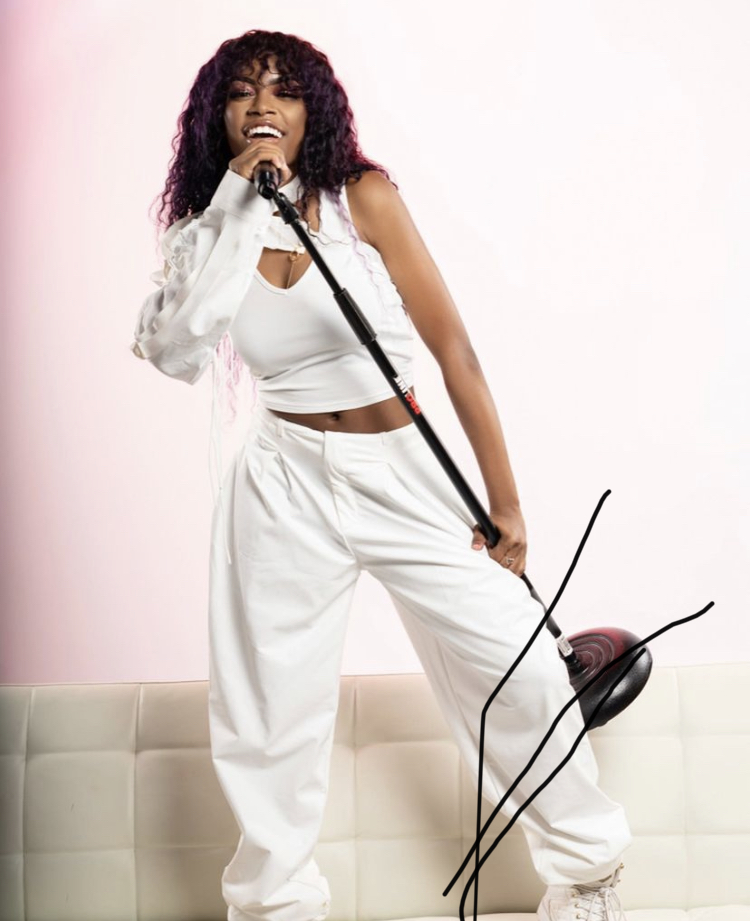
Cosplay, a portmanteau of ‘costume play’, is an activity and performance art where in which participants wear costumes to represent a specific character. The term was invented by Japanese film producer and director, Nobuyuki Takahashi, after seeing costumed fans at the 1984 World Science Fiction Convention in Los Angeles. However, it’s said that the history of cosplaying lies in the masquerade balls in 15th-century Europe. Gradually, the practice grew, developed, and evolved into modern-day cosplaying.
Of the many modern-day cosplayers, A-Ni Ochoa is one of the most well-known on the internet. With 940k followers on TikTok, the music artists’ cosplays have captivated the internet. She tells Cherwell all about the world of cosplaying and what it means for her as a Black woman and music artist.
A-Ni tells us that her interest in cosplaying came to surface in early 2018, when her older sister was into cosplay and A-Ni was invited to go with her to MOMOCON, knowing that she had an interest in anime/gaming. She said she “loved everything about it!” and “was in awe of the cosplays that people had and I wanted to be able to be a part of that.”
However, as cosplaying enters more mainstream media, issues like ethnicity and gender become more and more controversial. Issues such as blackface, brownface and yellowface become greater topics of debate as many cosplayers still feel that it’s acceptable in order to be true to their cosplays. Further issues are created where cosplayers of colour face criticism when cosplaying white characters, facing backlash claiming that ‘that character isn’t black you can’t cosplay as them’.
I ask A-Ni what it means to her to be a black cosplayer when the cosplaying community and the anime community can oftentimes be hostile to black people. A-Ni tells us that “It’s very disheartening to hear that people would be hostile to black cosplayers. To me it feels as if we haven’t progressed much as a community. Cosplaying is supposed to be fun and feel like a safe space that anyone can enjoy, regardless of what their skin complexion is or race. We have to support and protect POC cosplayers so that they don’t feel discouraged or worry about what others might think about them cosplaying. To help combat that, having a diverse community and a safe space within it can definitely be the start of making a better impact!”
Her positive attitude truly surprised me. As I myself am a big fan of her cosplays and the general cosplay community, I know too well the levels of abuse that cosplayers can receive, especially people of colour and women. I ask her if she herself has ever experienced colourism or racism when sharing her cosplays, and how she deals with it. “As a black cosplayer, there are often times when I get a wave of hate comments from cosplaying characters that aren’t black. I would get called racial slurs, and many other things, and even had experiences of people messaging me that they didn’t like that I cosplayed a certain character.
Despite getting those types of comments, I ignore them completely and to be honest it never affects me at all. Due to me already being in the music industry prior to cosplaying I’ve already built the thick skin for it and received worse comments on that end. But overall focusing on the hate did not get me as far as I am or halt me from doing what I love to do. It was catering to the audience that do love me and being an inspiration to other black cosplayers that got me to where I am now.”
A-Ni Ochoa is one-third of the Hip-Hop/Pop group, MAKO Girls. Based in Atlanta, the group features the three West Indian sisters Kena, Mimi, and A-Ni. The girls have performed live throughout the United States and the Bahamas with one of them as young as 14. Being in the public eye for as long as they have, and as young as they are, it’s not a surprise that A-Ni and her sisters have built a thick skin against internet trolls.
Though despite having a thick skin against those on the internet, how does she feel about the cosplayer community itself? The anime and cosplaying community has been accused many times of misogyny. Female cosplayers experiencing over-sexualisation, assault and lewd comments online. The anime community similarly has been accused of underrating its female characters and seeing them as figures of sexual desire rather than characters of genuine admiration or interest. These experiences have alienated women from cosplaying spaces and created an environment within the cosplaying community that could be said to be hostile to women. A-Ni’s take on this is that “From the experiences that I have with the anime community, I feel like the women in the community are lifting each other up constantly. I love and respect all of my mutuals because they always support any cosplay that I do. They are the first ones to comment, repost, or share my videos. And they truly make being a cosplayer worthwhile and fun. Now with the misogyny that’s been occurring, I haven’t been on receiving end of it, or heard of it happening, so I won’t be able to add too much to that topic. But that’s just my experience, especially since my audience is majority women.”
It’s beautiful that a young woman has the support of her community online. But it’s not just her female audience that supports the young cosplayer. I ask A-Ni how her family feels about her cosplays. Older generations, especially African and Caribbean parents, tend to struggle to understand things like cosplaying and anime. But A-Ni answers that “My parents are very supportive of me cosplaying, they just show it in different ways! My mom would always interact with my content, she’ll be excited for any character’s cosplay that I show her, and she loves the outfits despite her not knowing the show. Whereas my dad would see my post interact with some of them, but any milestone that I hit on my page he’ll always be one of the first to congratulate me. I am very grateful to have them.”
Though A-Ni explains that there are times when it is extremely difficult maintaining multiple social media presences as a music artist and cosplayer with her fully booked schedule. It is clear through her social media stats and bomb-ass music (stream ‘Leverage’ by MAKO Girls on Spotify!), that this is a both dedicated and talented young cosplayer and music artist.


